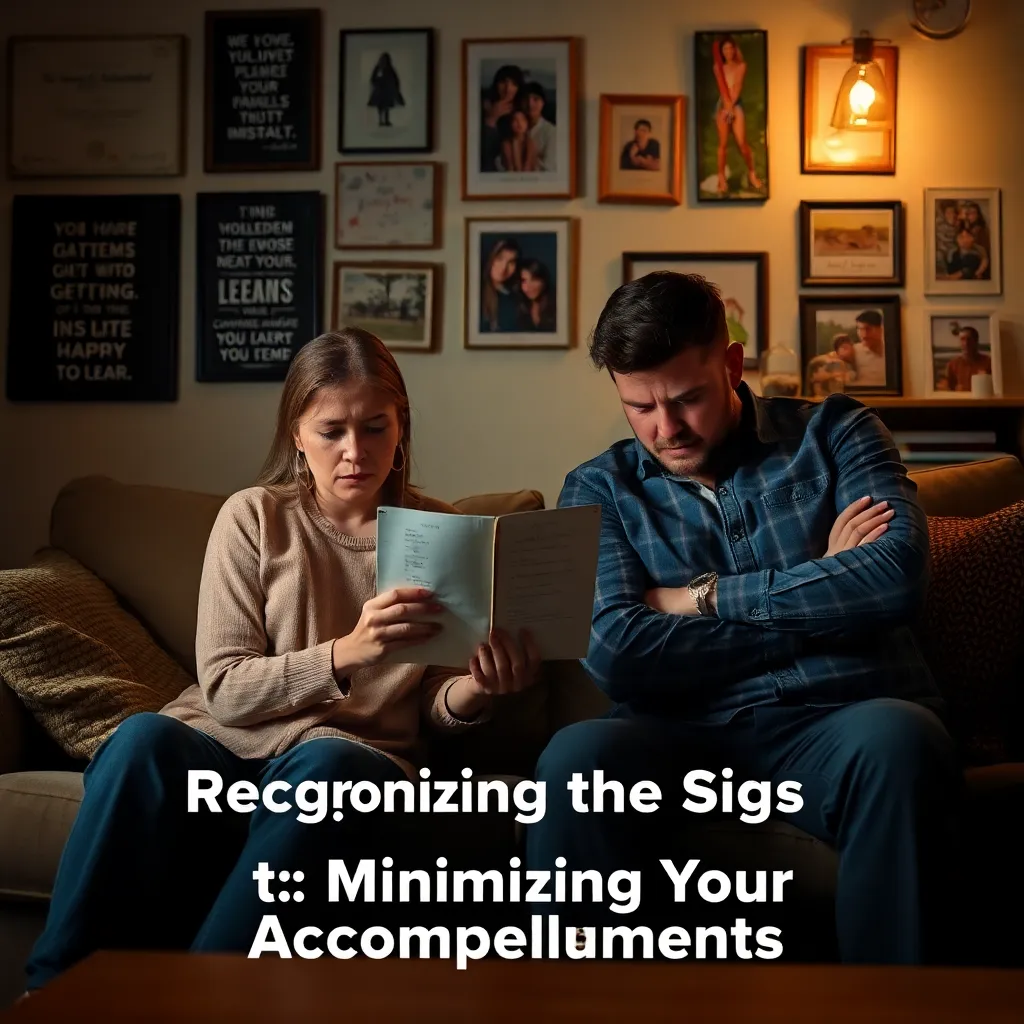Navigating the complexities of a relationship is challenging, especially when emotional abuse is lurking beneath the surface. If you’ve found yourself questioning your self-worth or feeling confused and trapped, you’re not alone, and acknowledging these feelings is a courageous first step. Emotional abuse can be insidious, subtly undermining your confidence and distorting your sense of reality. Recognizing these red flags is crucial for reclaiming your strength and finding clarity in your relationship.
In this article, we’ll explore 15 specific red flags that may indicate emotional abuse designed to create self-doubt. Our aim is to provide you with the knowledge to identify these patterns, empowering you to take action towards healthier interactions. As you read on, you’ll gain insights into the subtle tactics that can erode your self-esteem and learn to distinguish them from normal relationship conflicts. Understanding these signs is essential not only for your well-being but also for fostering relationships grounded in respect and trust.
By equipping yourself with this information, you’ll be better prepared to assess your situation and make informed decisions about your relationship’s future. Emotional abuse can be difficult to pinpoint, but with the right tools and support, you can start to rebuild your confidence and prioritize your emotional health. Remember, you deserve to be surrounded by love and respect, and recognizing these red flags is a pivotal step towards achieving that.
1. Frequent Silent Treatments

In many relationships, the use of the silent treatment can become a powerful tool for emotional manipulation. This tactic creates a sense of isolation and forces the affected partner to question their actions, often leading to self-doubt.
Consider a situation where one partner frequently withdraws communication and affection as a response to disagreements. This behavior can leave the other partner feeling confused and desperate for resolution, further deepening their insecurity.
Experts in relationship dynamics suggest that the silent treatment is a form of passive-aggressive behavior that can erode trust and intimacy over time. It’s important to recognize this pattern and address it through open communication and setting boundaries.
By acknowledging the damaging effects of frequent silent treatments, couples can work towards more constructive conflict resolution methods. Understanding and addressing these behaviors is essential for building a healthy, supportive relationship where both partners feel heard and valued.
2. Constant Criticism of Choices

Another subtle yet damaging tactic of emotional abuse is the constant criticism of your choices. Imagine sharing your excitement about a new job opportunity, only to be met with dismissive remarks about your capability or decision-making skills. Such criticism isn’t always overtly harsh but can undermine your confidence and make you question your own judgment. Over time, this can lead to a cycle of self-doubt where you find yourself second-guessing every decision.
In many cases, this form of criticism can come disguised as “helpful advice” or “constructive feedback.” A partner might say they’re just trying to help you make better choices, but if the feedback is never positive, it’s a red flag. Pay attention to how often your decisions are met with negativity versus support. Consistent negativity can erode your self-esteem and make you reliant on their approval for your self-worth.
Experts suggest that a healthy relationship should involve mutual respect and encouragement. If you’re constantly feeling belittled or inadequate, it might be time to reevaluate the relationship dynamics. Healthy criticism should be balanced with praise and delivered with care. If you’re unsure whether criticism is constructive or harmful, take note of how it makes you feel and whether it helps you grow or simply makes you shrink.
Listening to your inner voice can also be a powerful tool in combating the effects of constant criticism. Reaffirm your self-worth by reminding yourself of your strengths and accomplishments. Engaging in positive self-talk can help counteract negative comments and rebuild your confidence.
Ultimately, recognizing this red flag is the first step toward reclaiming your sense of self. By fostering self-awareness and seeking supportive environments, you can protect your confidence and maintain healthy relationship standards. Remember, you deserve a partnership that lifts you up, not one that tears you down.
3. Isolation from Support Networks

When someone you care about starts to subtly isolate you from your support networks, it can be a sign of emotional abuse. This tactic often begins with small, seemingly innocent requests, like choosing to spend time with them instead of your friends or family. Over time, these small requests can snowball into significant barriers between you and those who care about you, leaving you feeling increasingly alone.
Imagine your partner expressing dissatisfaction when you make plans with friends, subtly suggesting that your relationships with others are less important. This can create a cycle of self-doubt, making you question your own decisions and gradually eroding your confidence. It’s crucial to recognize this pattern and understand that a healthy relationship encourages maintaining connections with loved ones.
Experts on emotional abuse emphasize the importance of maintaining a strong network of support outside your relationship. Dr. Lisa Firestone suggests that isolation is a control tactic, and breaking free from it requires conscious effort and self-awareness. It’s vital to prioritize your connections and not let anyone guilt you into sacrificing them.
To counteract isolation, make a deliberate effort to connect with friends and family regularly. Plan activities that include your support network, ensuring you have a balanced life.
Doing so helps reinforce your identity outside the relationship and keeps your self-esteem intact.
4. Dismissal of Your Feelings

In emotionally abusive relationships, partners may often employ the *dismissal of your feelings* to foster self-doubt. This tactic can make you feel as though your emotions are invalid or irrational, leading you to question your own perception of reality. Consider a scenario where you express feeling hurt by a partner’s actions, only to be told that you’re being too sensitive. This can leave you second-guessing your emotional responses and wondering if your feelings are truly justified.
One of the most damaging aspects of this behavior is the erosion of your self-trust. When your emotions are consistently dismissed, you may start to believe that your feelings don’t matter, affecting your ability to make confident decisions. As a result, you might find yourself apologizing for having emotions, further diminishing your own self-worth. It’s essential to recognize that your feelings are valid and deserve to be acknowledged, regardless of what anyone else says.
According to relationship experts, the healthiest partnerships are those where both individuals feel heard and valued. If your concerns are constantly brushed aside, it may be time to reevaluate the dynamics of your relationship. Open communication and mutual respect are foundational to a thriving relationship, and your feelings should never be a casualty in the pursuit of harmony. Prioritizing your emotional well-being is crucial for a balanced and fulfilling partnership.
In conclusion, never underestimate the importance of honoring your own emotions. They serve as an inner guide, helping you navigate through the complexities of relationships. By staying attuned to your feelings and advocating for their acknowledgment, you foster a healthier relationship with yourself and your partner. Remember, a loving relationship is one where both partners’ emotions are respected and valued, encouraging growth and mutual understanding.
5. Gaslighting Your Perceptions

When someone constantly questions your version of events, it can lead to a deep sense of self-doubt. This tactic, known as gaslighting, is often used to make you feel like your perceptions are unreliable and that you cannot trust yourself.
Imagine sharing a concern with your partner, only for them to insist that you are “remembering things wrong” or “being too sensitive.” Such dismissals serve to undermine your confidence, planting seeds of doubt about your ability to interpret reality accurately.
Experts warn that prolonged gaslighting can erode your self-esteem and make you overly reliant on the abuser for validation. Over time, this can create a cycle where you begin to question your own memories, feelings, and judgments, leaving you feeling trapped and isolated.
To counteract gaslighting, practice journaling your experiences to document events as they happen, which can help reaffirm your perceptions. Also, seek support from trusted friends or a therapist who can provide an objective perspective on the situation.
By recognizing gaslighting and taking steps to protect your mental health, you can begin to reclaim your confidence and trust in your own perceptions. Remember, you deserve to feel secure and respected in any relationship.
6. Jealousy as Control Tactic

In many relationships, jealousy can be a natural emotion, but when it becomes a tool for control, it shifts into a harmful dynamic. Imagine a partner who constantly questions your whereabouts or friendships, not out of concern, but as a means to exert power.
Such behavior can slowly erode your self-esteem, making you question your own actions and intentions. Over time, this can lead to a dependency on their approval, making it difficult to engage in social activities without feeling guilty.
Experts suggest that this form of control stems from the abuser’s own insecurities, which are projected onto their partner. By recognizing this pattern, you can begin to set healthy boundaries, ensuring that jealousy does not dictate your freedom.
Consider the story of Lisa, who noticed her partner’s jealousy was affecting her friendships. She gradually learned to communicate her needs clearly, reaffirming her right to maintain her own social life.
Ultimately, addressing jealousy with empathy and understanding can transform a relationship, turning it into a space where both partners feel secure and valued. Remember, a confident relationship is one where each person feels free to be themselves without fear of judgment.
7. Shifting Blame Constantly

In emotionally abusive relationships, one common tactic is *shifting blame constantly*. Imagine a scenario where every disagreement turns into a session where you end up apologizing, even if you did nothing wrong. This pattern is particularly insidious because it can make you question your own actions and *undermine your confidence*. Over time, you may start believing that you’re the cause of every problem, which is exactly what an abuser aims to achieve.
Consider how subtle shifts in responsibility can distort reality. For instance, if your partner forgets an important date but somehow you end up comforting them for being upset, blame has been shifted. This tactic is often used to *evade accountability* and place the emotional burden on you. In the long run, this manipulation leads to emotional exhaustion and *erodes your self-esteem*.
Experts note that emotional abusers often use blame as a way to control their partners. Dr. Lisa Firestone, a psychologist specializing in intimate relationships, explains that blame-shifting is a way to maintain power by making the victim feel perpetually guilty. This dynamic can make it challenging to stand up for yourself or voice your concerns, as you’re constantly second-guessing your own feelings. Understanding this tactic is crucial to *breaking free from its grip*.
To counteract blame-shifting, focus on recognizing patterns and setting boundaries. Pay attention to situations where blame is being unfairly assigned to you, and practice *assertive communication* to express your feelings. Seek support from friends or a therapist to help validate your experiences and strengthen your sense of self-worth.
Remember, the ability to identify and address blame-shifting is a vital step towards *regaining your confidence* and ensuring a healthier relationship dynamic.
8. Minimizing Your Accomplishments

In emotionally abusive relationships, one common tactic is to minimize your accomplishments. This can make you feel your achievements are insignificant or unworthy of praise, leading to a diminished sense of self-worth. Imagine receiving a promotion at work only for your partner to dismiss it as a stroke of luck or suggest that the role isn’t challenging. Such remarks can slowly erode your confidence, making you doubt your abilities and worthiness.
When someone frequently downplays your successes, it’s essential to recognize this as a form of control. By belittling your achievements, the abuser keeps you dependent on their approval, making you less likely to seek validation elsewhere. This behavior is a subtle yet powerful way to ensure you remain in the relationship, feeling like you’ll never be good enough. Understanding this dynamic is the first step towards reclaiming your power.
To counteract this, surround yourself with people who genuinely celebrate your achievements. Friends, family, or mentors who uplift and recognize your hard work can provide a more balanced perspective. This support network can be a vital source of positivity, helping you rebuild the confidence that may have been chipped away over time. Additionally, documenting your successes in a journal can serve as a personal reminder of your capabilities and growth.
Remember, no one should make you feel less than for achieving your goals. Your accomplishments are yours to own and be proud of, regardless of anyone else’s opinion. As you embrace and celebrate your victories, you’ll find that your confidence begins to rebuild. This newfound strength can empower you to set healthier boundaries and demand the respect you deserve.
9. Invasion of Privacy Boundaries

Another tactic of emotional abuse is the persistent violation of privacy boundaries. This behavior often manifests in actions such as checking your phone without permission or reading your personal emails. Such intrusions can leave you feeling exposed and vulnerable, undermining your sense of security in the relationship.
Imagine your partner demanding access to all your social media accounts under the guise of transparency. While openness is crucial, this level of scrutiny can be a way to exert control and instill self-doubt. You might start questioning your own rights to personal space and privacy, feeling guilty for wanting boundaries that are entirely reasonable.
Experts emphasize that healthy relationships thrive on mutual respect for boundaries. Dr. Helen Fisher, a renowned relationship expert, suggests that maintaining some level of privacy is essential for personal growth and autonomy. It’s important to recognize that your need for privacy is not a sign of disloyalty but a fundamental aspect of your individuality.
In addressing these invasions, calmly but firmly re-establish your boundaries and communicate your needs. Make sure to explain how these actions make you feel and why privacy is important to you. This can help foster an environment of respect and understanding, which is essential for a healthy relationship.
Ultimately, respecting privacy is a sign of trust and respect within a relationship. When both partners honor each other’s boundaries, it strengthens the bond and enhances the overall health of the partnership. Remember, a loving relationship doesn’t require sacrificing your personal space and privacy.
10. Undermining Self-Esteem

Undermining self-esteem is a subtle yet powerful tactic used in emotional abuse. Often, an abuser will make seemingly innocuous comments that gradually erode a partner’s sense of self-worth, leaving them feeling inadequate and insecure.
Imagine being constantly told that your achievements are insignificant compared to others. Over time, these remarks can lead to self-doubt and decreased confidence, making it challenging to recognize your own value.
In many cases, the abuser may disguise these comments as jokes or constructive criticism, which can make it difficult to identify the behavior as abusive. It’s important to trust your instincts when something feels off and to validate your own feelings of self-worth.
Experts suggest that maintaining a strong support network can be crucial in combating these effects. Surrounding yourself with people who uplift and appreciate you can help counteract the negativity and reinforce your inherent value.
Ultimately, recognizing and addressing these harmful behaviors is a vital step in preserving your self-esteem. By understanding the tactics used to undermine your confidence, you can take proactive measures to protect your emotional well-being and build healthier, more supportive relationships.
11. Withholding Affection as Punishment

In some relationships, a partner might use the withdrawal of affection as a tool to control or manipulate. This can create an emotional rollercoaster where the receiving partner feels perpetually on edge, wondering what they did wrong and seeking validation.
Consider a scenario where one partner suddenly stops being affectionate after a disagreement, leaving the other in emotional limbo. This tactic can foster a sense of uncertainty and insecurity, further undermining the affected partner’s self-esteem.
Experts suggest that withholding affection is a subtle yet powerful form of emotional abuse that can destabilize a relationship. It is crucial to recognize this behavior as a red flag and address it through open communication or seek professional help.
Reflecting on your needs and boundaries is essential when faced with this issue. Expressing your feelings and discussing your expectations for affection can help both partners move towards a healthier dynamic.
12. Creating Financial Dependency

Financial dependency is a subtle yet powerful tool used in emotional abuse to create a sense of powerlessness. By controlling the finances, an abuser ensures that their partner feels trapped and unable to leave the relationship.
It’s not uncommon for one partner to subtly restrict access to money or limit their partner’s ability to work. This tactic can lead to a profound sense of insecurity, as the victim feels incapable of supporting themselves independently.
Consider a scenario where a partner insists on handling all financial matters, dismissing any attempt by their significant other to participate. Over time, this exclusion reinforces the idea that they are incapable of managing finances, further deepening their dependency.
An expert on relationship dynamics, Dr. Emily Carter, notes that this pattern often leads to a cycle of control and fear. She emphasizes the importance of recognizing these signs early to prevent long-term emotional damage.
Developing financial literacy is a crucial step towards breaking free from such control. Enrolling in personal finance courses or workshops can provide the knowledge and confidence needed to regain financial autonomy.
Ultimately, establishing financial independence is not just about money; it’s about reclaiming your autonomy and self-worth. By taking these steps, you create a more balanced and equitable relationship, free from the chains of financial dependency.
13. Threats Disguised as Jokes

In some relationships, sarcastic comments and jokes are used as a veil for deeper, more harmful intentions. A partner might say something like, “Oh, you’re going to wear that? You’re so brave!” while laughing, but their tone can leave you feeling small and unsure about your choices. Such behaviors are not just harmless banter; they’re subtle forms of control and manipulation that chip away at your self-confidence. By disguising these threats as jokes, the abuser creates a confusing environment where it becomes difficult to distinguish between playful teasing and genuine criticism.
Often, repeated exposure to these disguised threats can make you question your perception of reality. You might find yourself wondering if you’re being too sensitive or if you simply can’t take a joke. This is a classic tactic to instill self-doubt, making you second-guess your feelings and reactions. The emotional turmoil it generates can leave you feeling isolated and unsure of your own judgment.
Expert psychologists note that such behaviors are a form of emotional manipulation aimed at undermining your self-esteem. When jokes feel like thinly-veiled criticisms, it’s essential to recognize the pattern and address it openly with your partner. Establishing clear boundaries and expressing how these comments make you feel can be a vital step in regaining your confidence and sense of self. This approach can help transform the dynamic into one that is more respectful and supportive.
Above all, remember that laughter should bring joy, not pain. If humor in your relationship consistently leaves you doubting yourself, it’s a signal to reassess the communication patterns at play. By taking proactive steps and seeking support, you can work towards a relationship where humor uplifts rather than undermines. The key takeaway is to trust your instincts and prioritize your emotional health.
14. Disregard for Your Opinions

In a relationship where there is a disregard for your opinions, it often feels like your voice is being drowned out by a louder, more dominant one. This behavior can manifest subtly, with your partner frequently dismissing your thoughts or decisions without genuine consideration.
Imagine a scenario where you propose a new idea or plan, only to have it quickly shot down with a wave of the hand or a roll of the eyes. Over time, this pattern of belittling your input can lead to significant self-doubt, making you question your own judgment and worth.
Experts highlight that when your opinions are consistently dismissed, it can erode the foundation of mutual respect in the relationship. This not only affects your self-esteem but also creates an imbalance where one partner holds undue power.
To counteract this, it’s crucial to assertively communicate the importance of being heard and valued. Seeking outside perspectives, such as a trusted friend or therapist, can also provide clarity and reinforce your sense of self-worth.
By recognizing and addressing the disregard for your opinions, you take a pivotal step toward nurturing a healthier, more equitable connection. Remember, a relationship thrives on mutual respect and the value placed on each partner’s voice.
15. Unpredictable Emotional Reactions

In relationships, experiencing unpredictable emotional reactions from your partner can be deeply unsettling. One moment, everything seems fine, and the next, you’re caught in a whirlwind of emotions you weren’t prepared for, leaving you questioning your own perceptions.
Imagine planning a simple dinner date, only to be met with anger or frustration without any apparent reason. This kind of behavior can create an environment where you feel like you’re walking on eggshells, constantly trying to avoid triggering an unexpected reaction.
Experts say that such unpredictable responses are often used to keep you in a state of confusion and self-doubt. When you can’t predict how your partner will react, you may start doubting your own actions and feelings, wondering if something is wrong with you.
One strategy to cope with this is to establish clear communication boundaries. Let your partner know that while emotions are natural, it is important to express them in a way that fosters understanding rather than fear.
Using this documentation, you can approach the conversation with specific examples, which can make it easier for your partner to understand the impact of their actions. A relationship thrives when both partners feel secure and valued, not uncertain and anxious.
Ultimately, nurturing a healthy relationship involves creating a safe space for both partners to express themselves freely and respectfully. Recognizing and addressing unpredictable emotional reactions is a vital step towards fostering a supportive and loving environment.
Conclusion: Creating Beautiful Outdoor Spaces
In navigating the complex terrain of relationships, understanding the insidious nature of emotional abuse is crucial to fostering healthy connections. This article uncovered 15 red flags that often manifest as control, manipulation, isolation, and disparagement, leading to debilitating self-doubt. By recognizing these tactics—such as gaslighting, excessive criticism, and emotional withholding—you are better equipped to protect your emotional well-being.
As a first actionable step, take time to reflect on your relationships, noting any parallels to these red flags. Discussing your observations with a trusted friend or therapist can provide clarity and support. Remember, awareness is the first step towards change.
To ensure this vital information is at your fingertips, save or bookmark this article. It serves as a valuable reference for assessing not only current relationships but also guiding you in nurturing future, healthier ones.
Looking ahead, know that relationship success is built upon mutual respect, understanding, and open communication. By taking proactive steps today, you’re paving the way for a future filled with love and empowerment. You’ve got the knowledge—now, take action and keep this guide close as a beacon for your journey.
